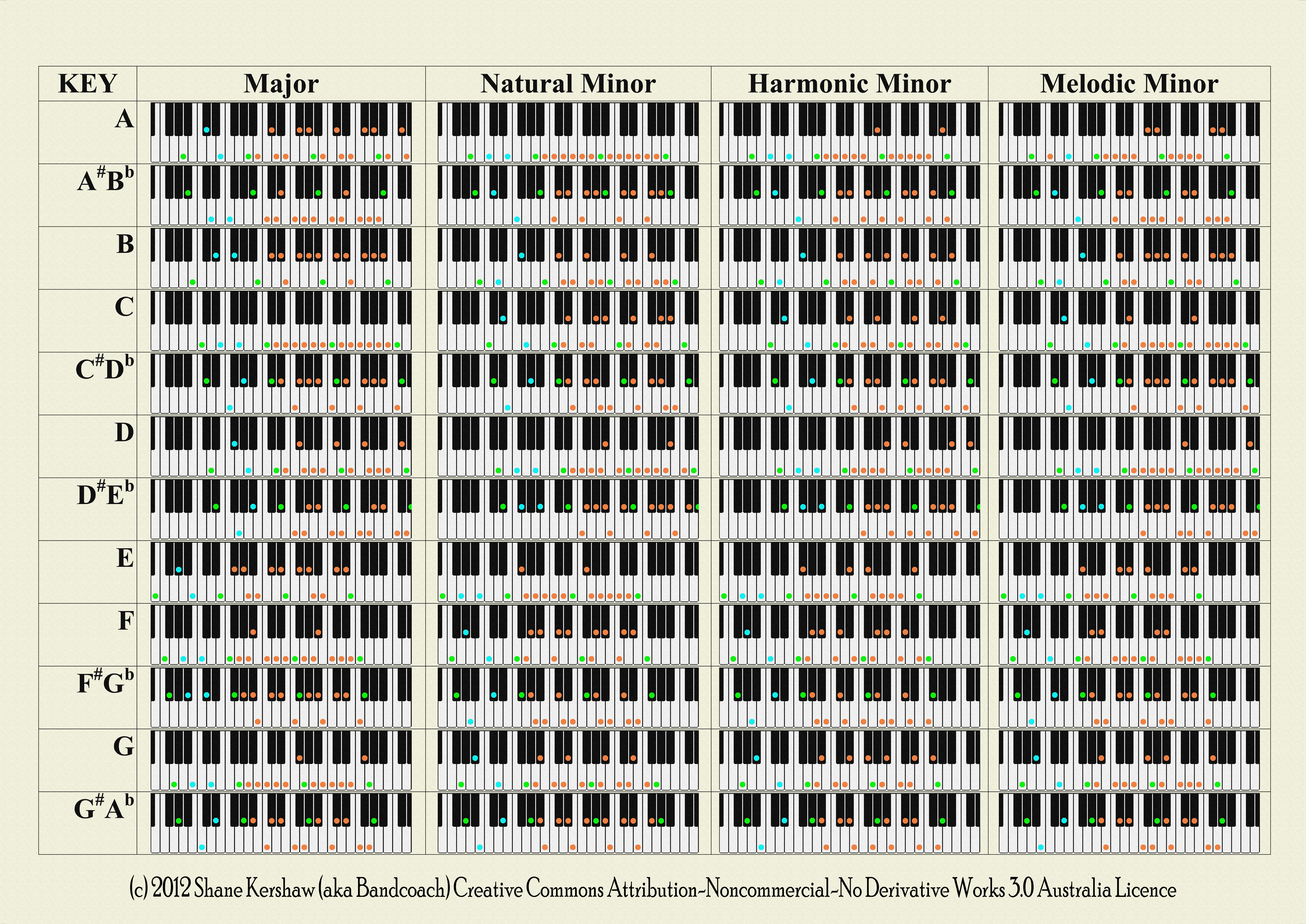Pumpthrust
New member
So is it modulation when going from a minor key to a relative minor. Like if i play c major and going a minor can i then play the a minor scale and it still make sense.
Yeah, cause you're using the same notes.
So is it modulation when going from a minor key to a relative minor. Like if i play c major and going a minor can i then play the a minor scale and it still make sense.
? Ive gone lost. Isnt a relative minor only gonna play the same notes in a relative major scale? Why are other minor scales flat is if your only gonna play in a minor and not switch to relative major? What minor can only play with relative major is what i wanna know?

So, to remedy the deficiencies of the webiste dmajor has been frequenting, here is a chart of major, natural minor, harmonic minor and melodic minor scales for keyboards. Took me 2 hours to construct from scratch.
just personally from experience.
i have come from a family with no musical talent at all except for my dad being an ex sound producer.
i found that less theory with in music was better for me. i found that listening to a piece of music or a song a few times would instill in my head what the music sounded like and the specific notes to be played.
i started piano when i was 5 now im 21 play piano sing guitar and drums. it doesnt take much to master music, it depends on how badly you want to learn with out having prior knowledge of music.
xhushBaby
I'm dealing with this now. Four years ago, I chose to learn jazz music. I'm 35 years old and its hard knowing that no matter how hard you work, no matter how many hours you put in ear training and learning songs, you will never attain the same level of expertise as some kid who has been playing and learning all his life and now is in college studying music fulltime. I seriously considered music school---went as far as dropping out from a pre-med program to take 4 semesters of music at a community college and private lessons. I wish so much that I could be apart of a big university music program and have the opportunity to study my craft fulltime alongside other musicians, but it's an expense I just cannot afford. Not too mention my health and dexterity is no where near that of some cat who has been at it since they were a toddler. You don't know how old your body really is until you decide to learn an instrument. Do I regret not sticking with my plan to go to medical school? YES, I do. But could I put off learning something I love for another 5 years? NO, I couldn't. Even the little bit of theory I do know has helped open my mind and ears tremendously.it is important to note that hushbaby tells us that they started to play at the age of 5 and 16 years later were mastering singing, piano and guitar
- i.e. they tell us the start point and current point on their journey, but do not describe what path they took along the way to learning to play the piano in particular
- I am willing to bet that at the age of 5 they were working from notation with a teacher
- however, as is pointed out there is also the parallel path where alongside the formal learning there is the informal learning that comes from jamming and application without notation in front of you
- I trod both paths and still do so
- the point of the above; it takes many steps to finish a journey and they do not all lie upon the same road; however, we would be foolish not to ask for directions or to even use a map where appropriate
